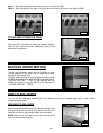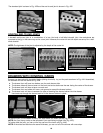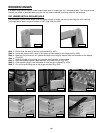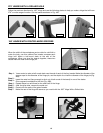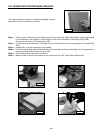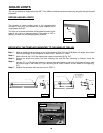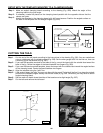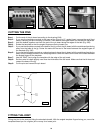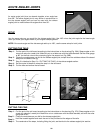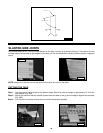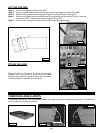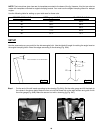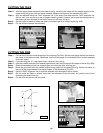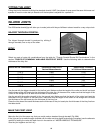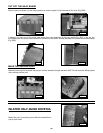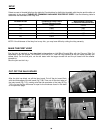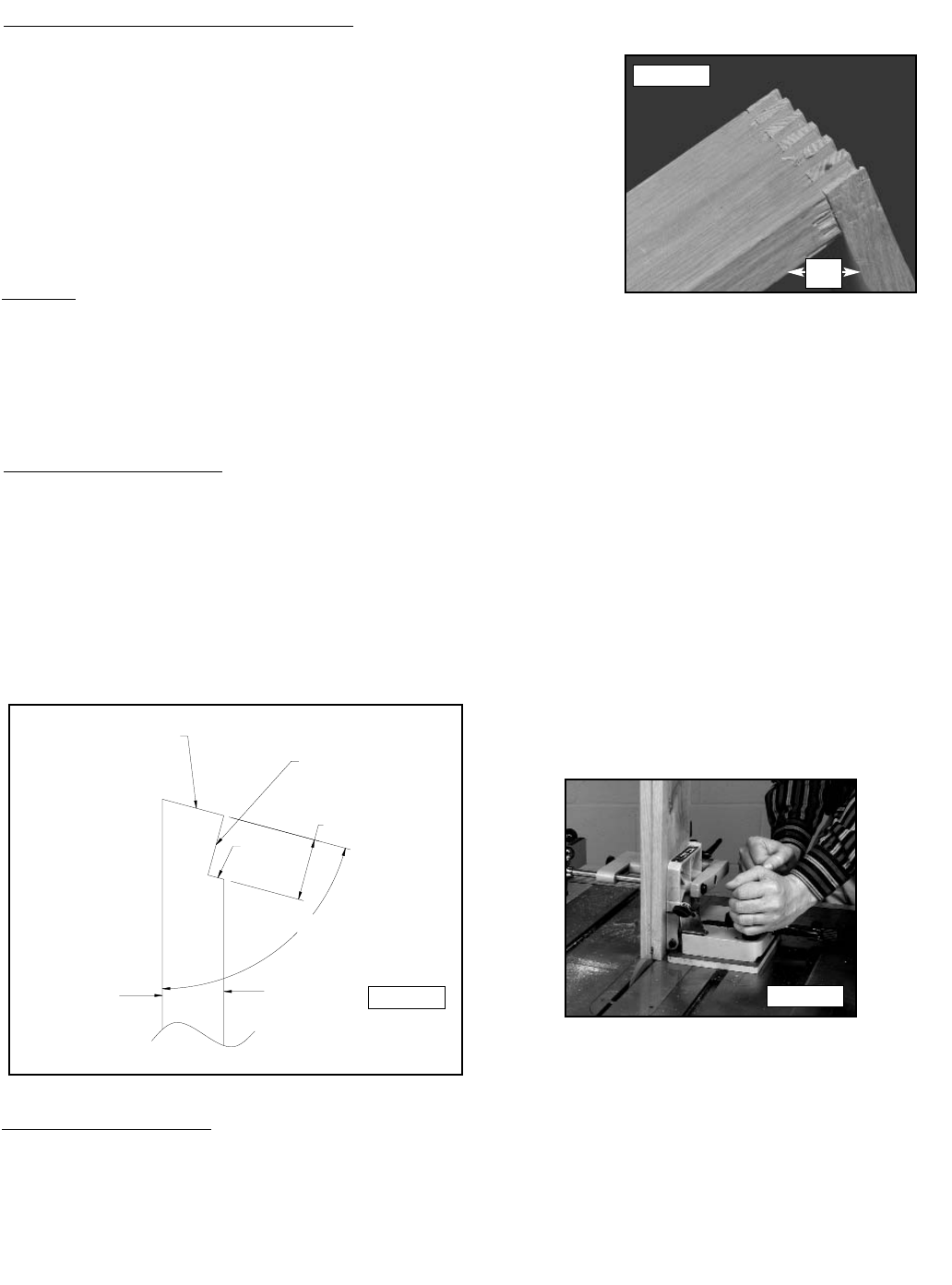
32
CUTTING THE PINS
Cut the end of the pin board according to the instructions on the drawing (Fig. 57A). Steep angles or thin
wood will make for a weak joint. Make this cut on a table saw with the blade beveled, and with the miter
gauge set at 90°.
Clamp the workpiece as you did for the obtuse-angled joint.
Hold the boards together and mark the end of the pin board at the edges of the tails.
The remainder of the steps, including fitting the joint, are identical to the obtuse-angled joint section.
Step 1 -
Step 2 -
Step 3 -
Step 4 -
SETUP
Use the same setup as you would for the obtuse angled joint. Use 180° minus the joint angle for the insert angle
when you make your angled insert or your angled clamping board.
NOTE: If the acute angle and the obtuse angle add up to 180°, use the same setup for both joints.
CUTTING THE TAILS
Cut the end of the tail board according to the instructions on the drawing (Fig. 56A). Steep angles or thin
wood will make for a weak joint. Make this cut on a table saw with the blade beveled. Set the miter gauge
at 90° for the first cut and use a tenoning jig for the second cut (Fig. 56B).
Clamp the workpiece as you did for the obtuse-angled joint, except face the outside surface of the board
away from the base of the jig.
Step 3 is identical to Step 5 in "CUTTING THE TAILS" of the obtuse-angled section.
Set the router bit depth to where the step is in the tail board.
Cut the tails and remove the tail board.
Step 1 -
Step 2 -
Step 3 -
Step 4 -
Step 5 -
FIRST CUT
SECOND CUT
THIRD CUT
(IF NECESSARY)
OUTSIDE
SURFACE
OF BOARD
INSIDE
SURFACE
OF BOARD
THICKNESS OF PIN BOARD
ANGLE BETWEEN BOARDS
Fig. 56A
Fig. 56B
ACUTE ANGLED JOINTS
An acute angle joint joins two boards together at an angle less
than 90°. The acute angled joint is very similar in construction to
the the obtuse angled joint and can be used with the obtuse
angled joint to make boxes with angles other than 90°.
Fig. 55A
Joint
Angle



